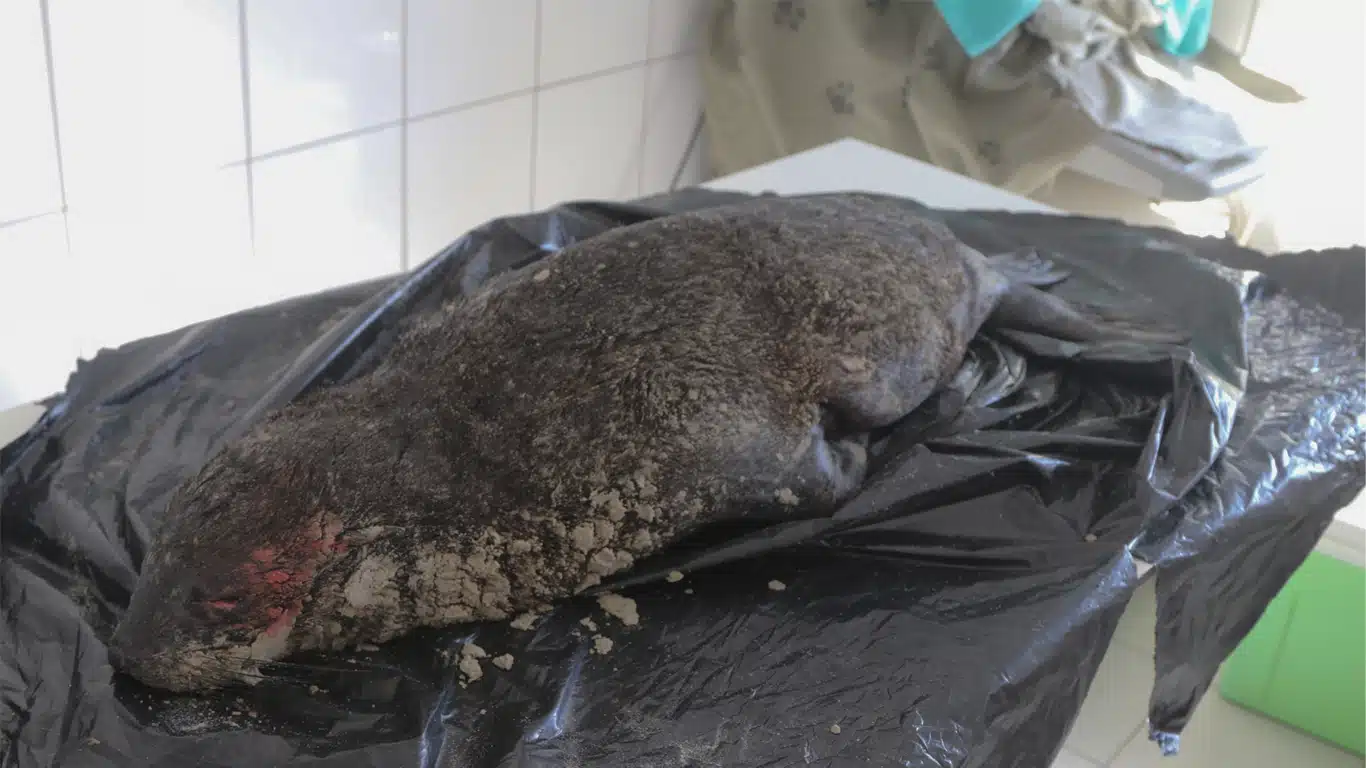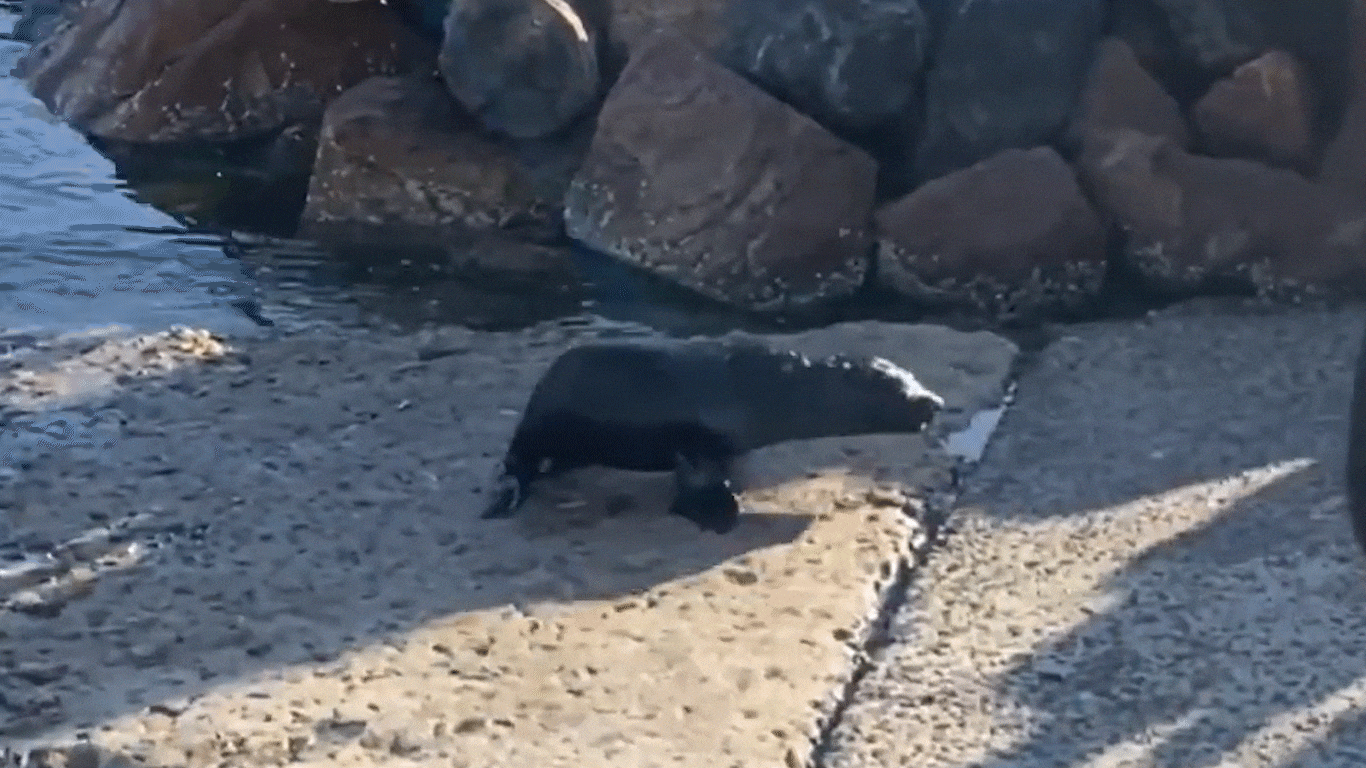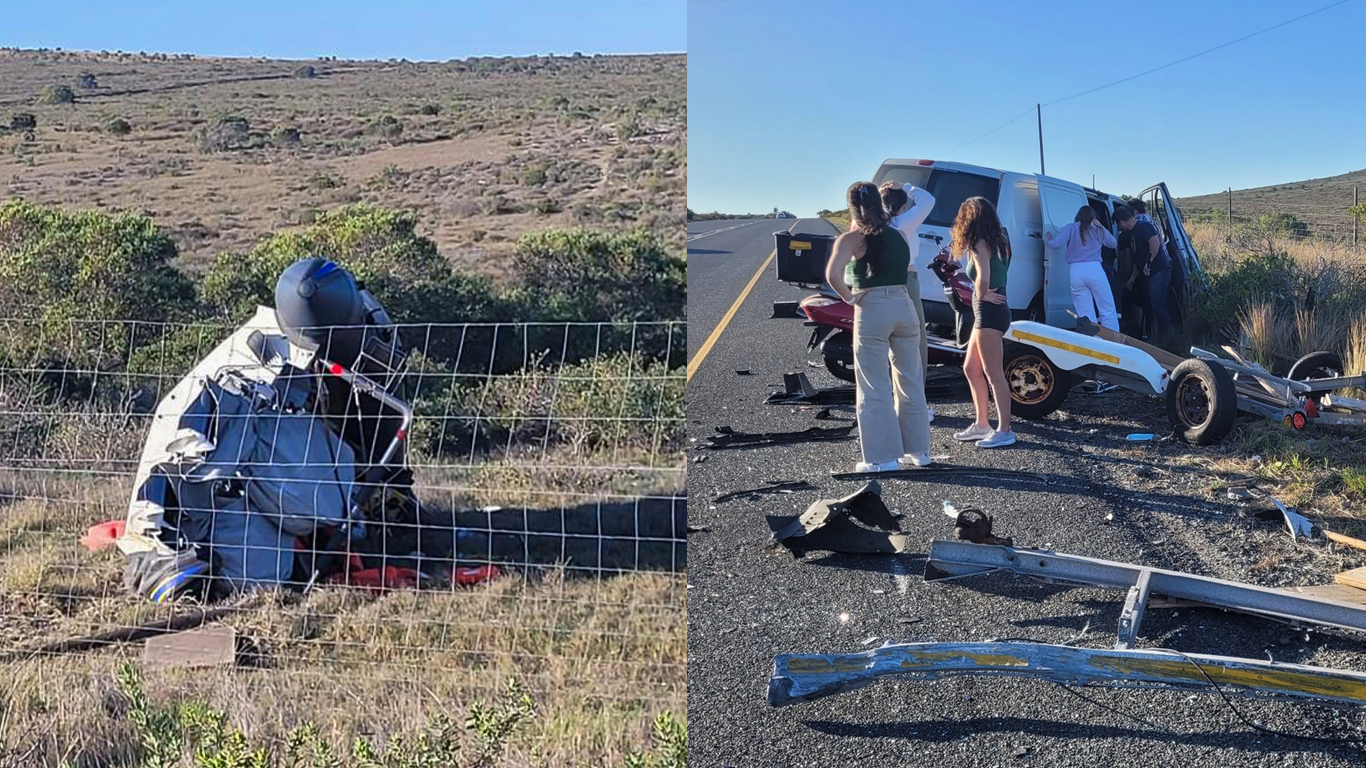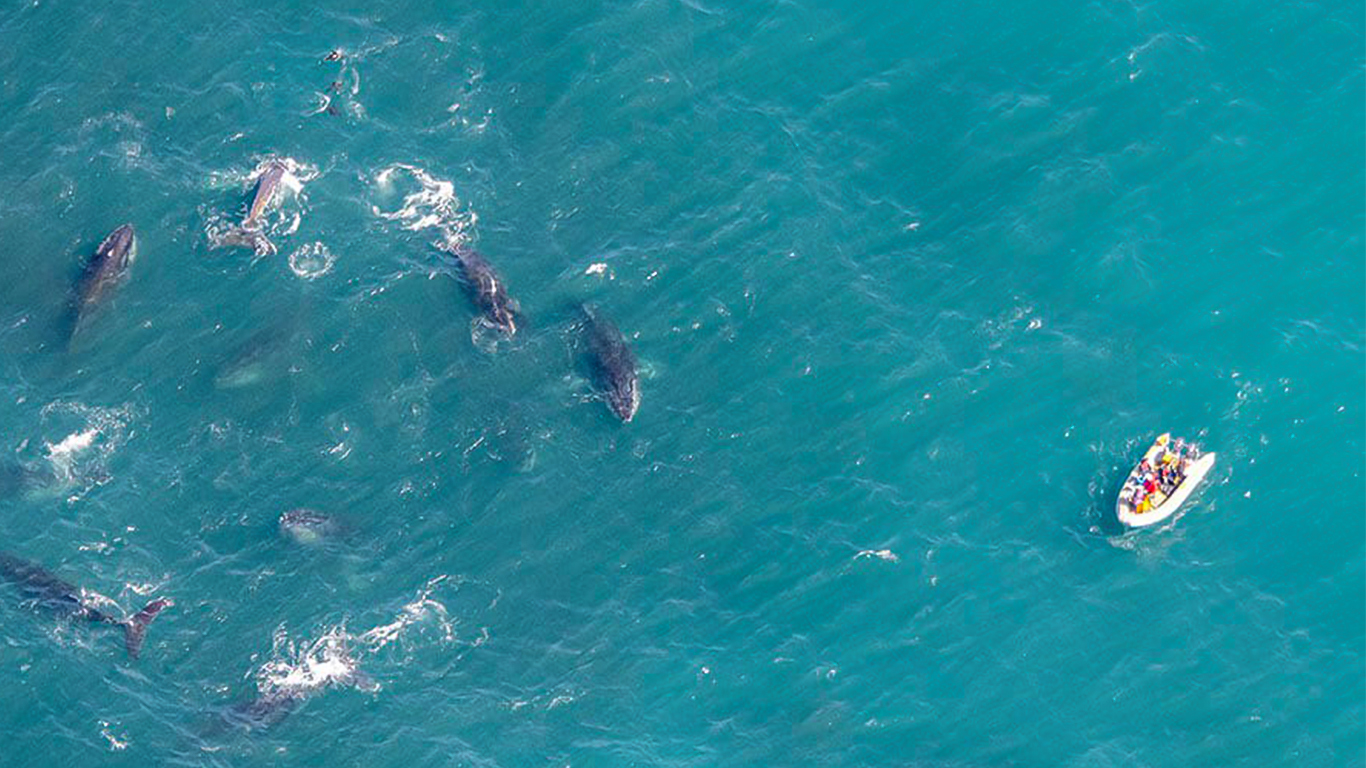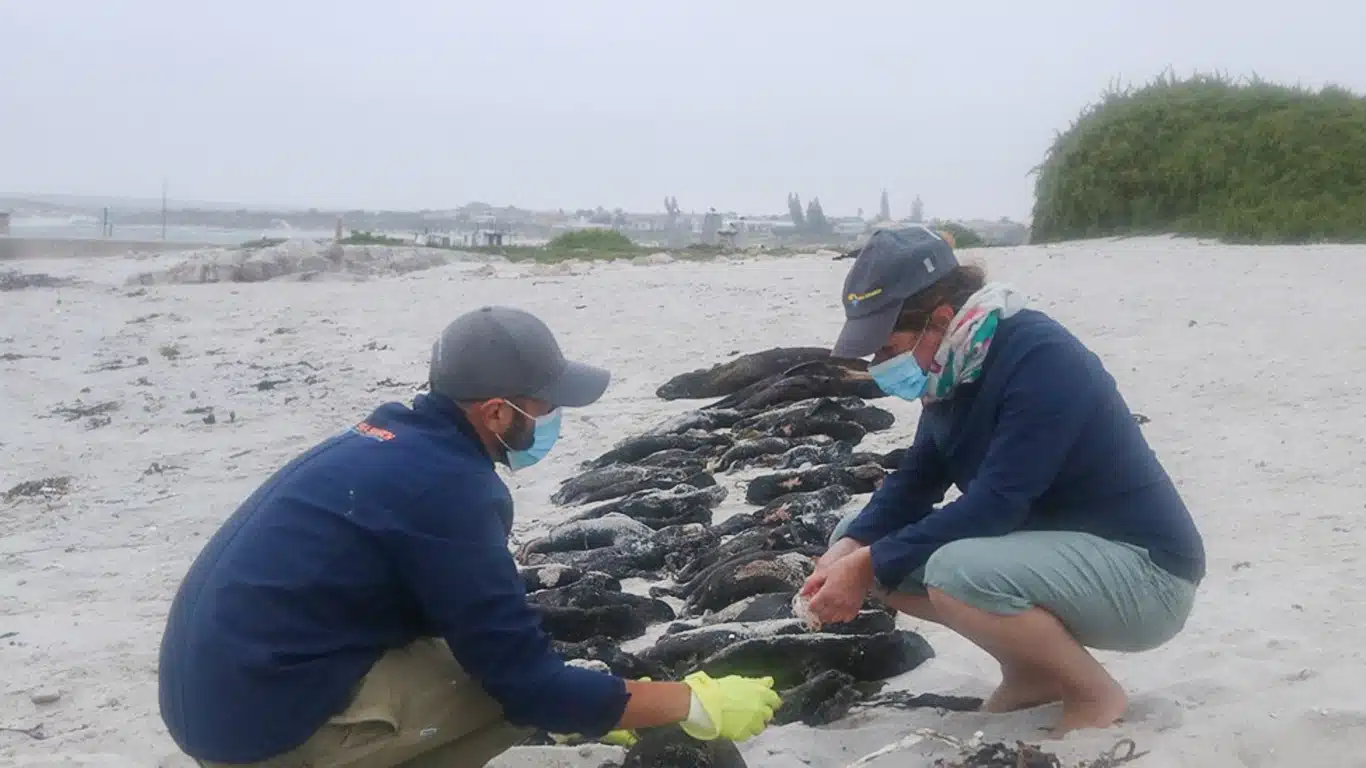A deadly threat is emerging off the coast of South Africa – one that has the potential to develop into a widespread marine catastrophe.
For the first time ever, rabies is spreading through the Cape fur seal population in South Africa, sparking fears of a far-reaching marine pandemic. Without immediate action, this devastating virus could spread rapidly, endangering countless more marine mammals and triggering an ecological crisis.
This is not just a disease outbreak – it is a potential ecological and public health crisis.
For the first time ever, rabies is spreading through the Cape fur seal population, sparking fear that the virus will infect other marine mammals. Credit: Sea Search Rescue and Conservation/Herbert Gawrisch
The first case in Cape fur seals was confirmed in May 2024. Since then, South African scientists have been struggling to track the virus as it spreads amongst local colonies.
In the final stages of infection, the rabies virus essentially ‘commands’ the animal to bite, transmitting the virus through saliva. According to the National Institute for Communicable Diseases, “Multiple reports of attacks on humans by aggressive Cape fur seals have been reported over the last few months along the Cape coastline. This is the first incidence of rabies being maintained in a marine mammal population.”
We know the virus can infect humans and land mammals. What we don’t know is whether it can jump species yet again, potentially infecting other marine mammals such as whales, orcas and other seal species.
Local scientists are battling to understand this terrifying new development.
To prevent this from becoming a full-blown pandemic, they need all the help they can get.
The deadly disease caused by a virus, often manifests with aggressive behavior in infected animals. This aggression is a key factor in the virus’s transmission. Credit: Sea Search Rescue and Conservation
If we ignore this terrible threat, the virus could spread to other marine species, coastal wildlife, and humans.
Rabies is a fatal disease; if it isn’t treated immediately after infection, contracting full-blown rabies is a death sentence. We must stop the spread now to prevent countless deaths, both on land and at sea.
Animal Survival International (ASI) has partnered with Sea Search, a marine research NGO that was among the first to identify this unprecedented outbreak. Their team of scientists is leading the response, tracking infected seals, conducting post-mortems, mapping behavioral changes, and gathering critical data from coastal colonies to understand how rabies is spreading through the marine ecosystem.
But their only surveillance boat was recently destroyed, and Sea Search is now unable to continue their vital, life-saving work.
The Sea Search surveillance boat was critical in the monitoring of the spread of rabies in Southern Africa’s marine mammals – we must help the research team return to the sea immediately. Credit: Sea Search Rescue and Conservation
The surveillance boat was destroyed in a recent transport accident. Without it, they are unable to access remote colonies, losing critical time, data, and the ability to contain the outbreak at its source.
Rabies is continuing to spread, and for every day without this vessel in the water, more animals, ecosystems and people are at risk.
This surveillance vessel is not just a boat — it is the frontline defense against the spread of rabies across the world’s oceans.
With your support, we can help the Sea Search rabies research team return to the sea immediately, so they can:
- Reach remote seal colonies rapidly and consistently to monitor the spread of the infection
- Administer vaccines and facilitate medical intervention for suspected infected animals
- Coordinate with veterinarians and epidemiologists to understand the epidemic and develop effective solutions
- Humanely manage infected individuals to stop the spread
- Protect the seal colonies from fishermen and others who may try to kill the seals out of fear
Getting Sea Search back on the water will give us the best chance of containing this virus before it spreads further through the marine ecosystem — and, potentially, beyond. Please, donate today to help protect marine life, coastal ecosystems and human communities from the spread of this deadly, fast-moving virus.

